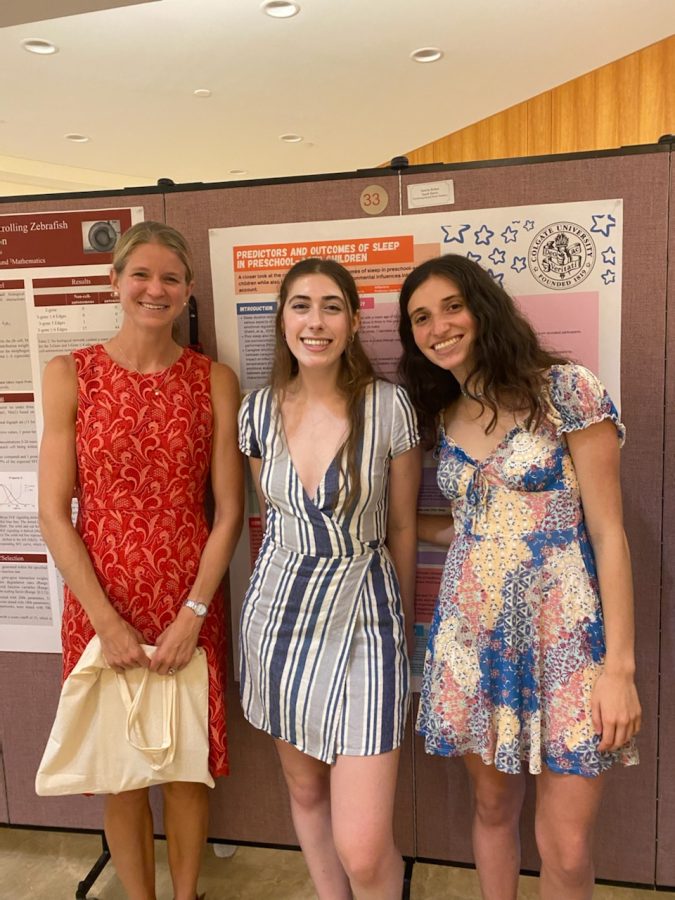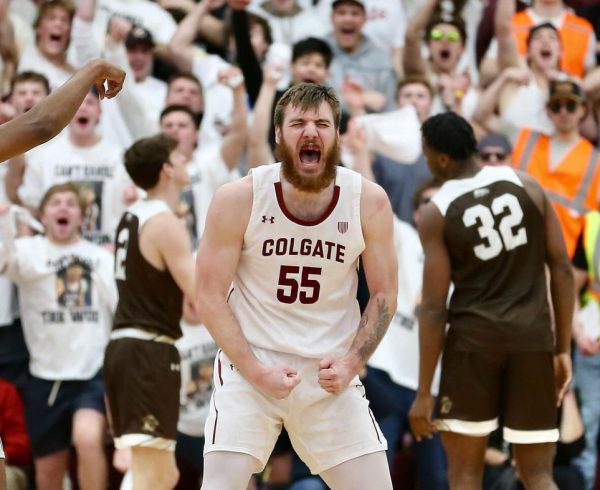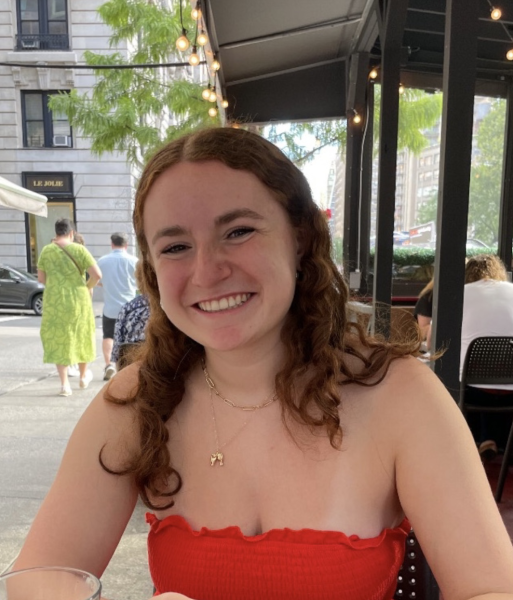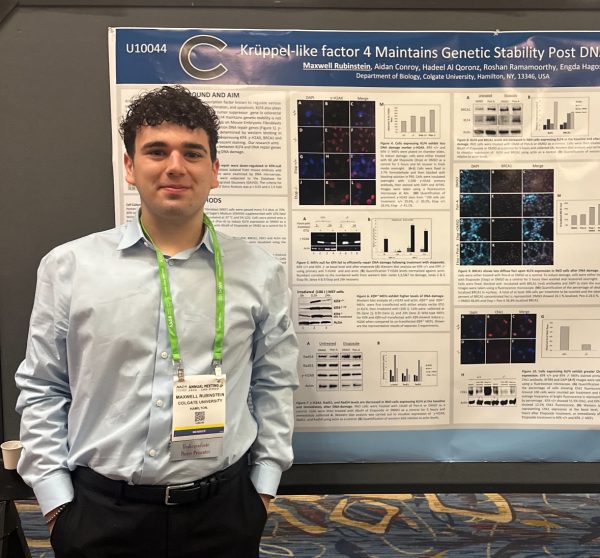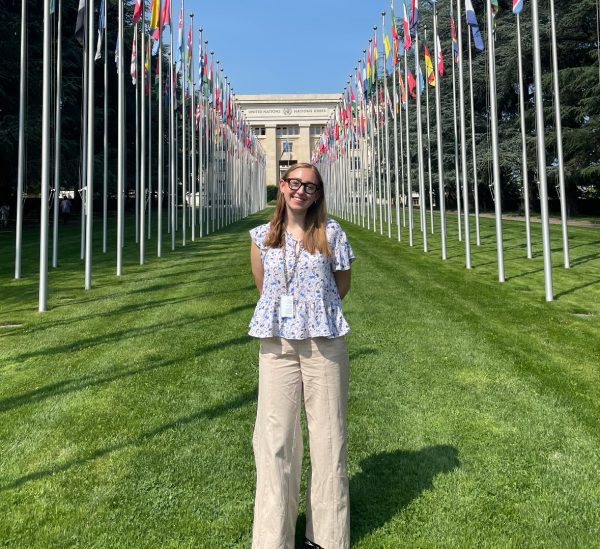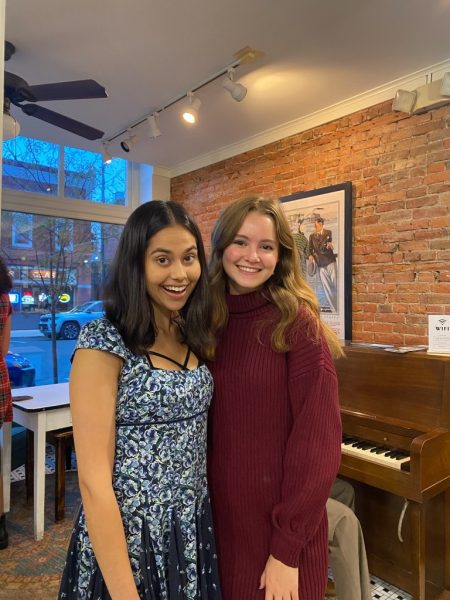Summer School: Research in Hamilton
Walk around Colgate for an afternoon and you’ll most likely run into someone who has spent the summer in Hamilton and loved it. Summer is a special time to experience the village, and many have gotten this opportunity by conducting research with professors.
Senior Emma Pizer is one such student. Pizer completed research in the computer science department with Professor Georgiana Haldeman this summer, creating a program designed for to help make computer science more accessible for first-time learners.
Pizer explained that the program was designed to teach students about “time complexity,” a term often used in computer science. When you write code, it takes time to run on the computer. Time complexity involves learning how to calculate how long the code will take to run. Pizer’s program illustrated how to complete this process for a first-time learner.
She said that her favorite part about the research program was getting the chance to be on Colgate’s campus in the summer months.
“It felt nice to stay here to experience [summer] when there isn’t the stress of academics and everyone here. I could really appreciate the campus,” Pizer said. “I got to know campus better and felt like I fit in more. I was in buildings and was the only one working there and had the freedom to roam around.”
Not everything was as easy though — towards the end of her research, Pizer hit a wall with her code, feeling as if she couldn’t make any more progress. She ended up having to rely on Haldeman a lot more than before, and they tried having her switch projects for the end of the summer. But Pizer persevered and ended up finishing everything Haldeman had originally asked of her.
“It was really rewarding to finish on such a strong note,” remarked Pizer.
Pizer reflected that she gained a lot more insight into what she likes to do in the coding world.
“I was able to narrow my career path because I enjoyed my experience so much. I feel a lot more secure in my computer science knowledge and my abilities to graduate and get a job. I’m not as anxious and just more confident [in my abilities],” Pizer said.
Junior Carissa Edwards-Mendez also spent the summer at Colgate, completing research on the virtual Galapagos project with Karen Harpp, Professor of Geology and Peace and Conflict studies, and Joe Eakin, Technical Director and Designer of the Ho Tung Visualization Lab. The Galapagos project is a virtual field trip for 3rd- to 5th-graders to learn about geology, biodiversity and the value of science in general.
“I had the best time staying at Colgate this summer,” Edwards-Mendez reflected. “I met so many new people that I normally never would’ve met. And, I felt like I got to experience the town of Hamilton in a whole new way, going to the Farmers’ Market every Saturday and the concerts on the Village Green every Thursday. Staying here over the summer has made me realize how special and unique a place Colgate is.”
While senior Sarah Harris spent this past summer elsewhere, she conducted on-campus research in 2021, working with Assistant Professor of Psychology Lauren Philbrook and fellow senior Amelia Bohan to study the sleep patterns of children.
The study, called “Bedtime Parenting Practices and Sensitivity are Associated with Young Children’s Sleep,” delved into the connections between the bedtime activities of children aged three to five and their sleeping efficacy. Factors such as amount of bedtime technology usage and parental presence when preparing for bed at night were examined as well.
Just last week, this research was published in the Journal of Family Psychology. The achievement was the culmination of a summer’s worth of efforts, from recruiting participants across the entire central New York region to analyzing research data. Bohan and Harris stayed on campus when most students returned home for summer in early May, and worked through late July.
“I think that this made me realize that a career in academia, as a professor or something, or a primarily research based career, it’s actually one that I’m pretty passionate about,” Harris said.
Harris also reflected on the bond she formed with her co-authors in the process.
“The three of us were working on everything together all the time. So it was a lot of personal time, which was really nice. We were able to meet my professor’s family and get to know each other in a peer setting, even beyond mentorship” Harris said.
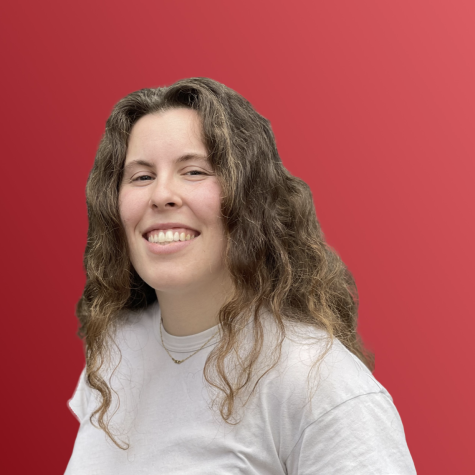
Andie Cook is a senior from Los Angeles, CA concentrating in philosophy and minoring in political science. She has previously worked as an assistant section...


